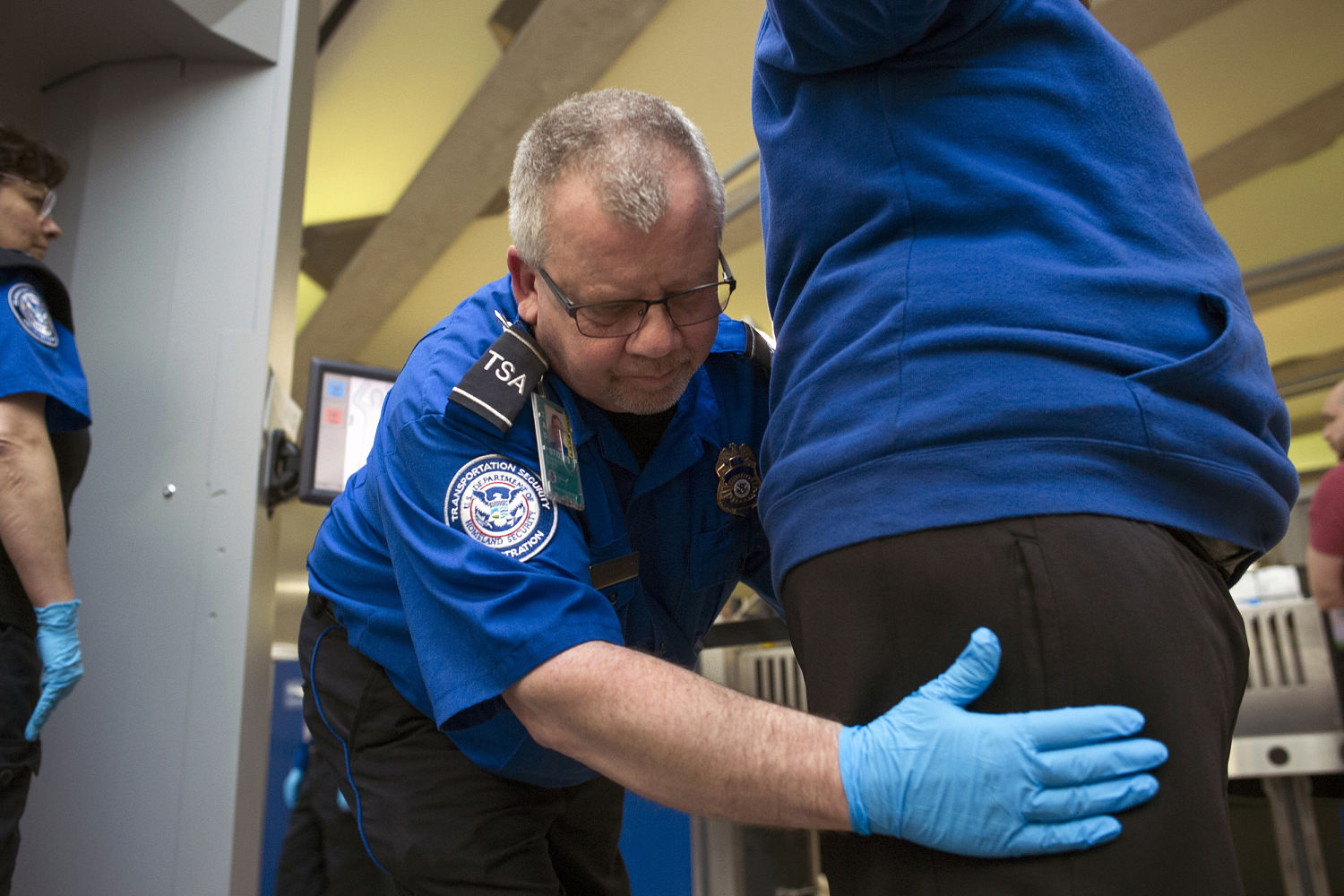

WASHINGTON — Transportation Security Administration officers and air traffic controllers across the country could be working without pay during the Thanksgiving travel rush as the U.S. heads toward a government shutdown days before a record number of air passengers are expected at U.S. airports.
The federal government will shut down and be unable to continue paying its workers starting Saturday unless Congress passes a new funding bill. While airport security and air traffic controllers will still be required to show up for work without pay, past shutdowns have led to increases in absenteeism, which could be a recipe for flight delays and extreme security lines for holiday travelers.
The air travel workforce is already stretched thin, with TSA officers and air traffic controllers working mandatory overtime amid staffing shortages and a record number of air travelers. The financial uncertainty of not being paid could put even more strain on the system, making it difficult for some to afford the child care and transportation needed to get to work, while others could be forced to take on second jobs.
“If we’re going to shut down, it’s going to be ugly. I’m very concerned about the mental state of the employees and how long they’re willing to endure this government shutdown,” said an official with the union representing TSA employees, Johnny Jones, a transportation security officer at Dallas-Fort Worth International Airport. “The No. 1 thing that they’re thinking about is that next paycheck.”
The TSA expects an increase in travelers over the Thanksgiving holiday period, with the busiest day being the Sunday after Thanksgiving, when a record 3 million people are expected to fly.
House Republicans will try again to pass a short-term budget this week, but with just five legislative days left until the deadline, there is little room for error. Over the weekend, House Republicans put forth unveiled an unusual approach to averting a shutdown by proposing several spending bills needed to keep the government open into January to bring together opposing Republican factions.
During the last shutdown, which began on Dec. 22, 2018, travelers faced longer security screening lines after TSA officer call-outs increased as much as threefold at Dallas-Fort Worth International Airport and the absentee rate among airport screeners peaked at 10%, compared to the average 3% absence rate, according to a report by the research firm Tourism Economics.
Biden administration officials have begun warning about the toll a shutdown could have on employees and the ripple effect it could have on travelers.
“The last government shutdown in 2019 was 35 days, and when you go 35 days without a source of income, that’s very, very hard,” TSA Administrator David Pekoske said in an interview on NBC’s “TODAY” show. “It’s hard to put gas in your car. It’s hard to pay for parking, hard to pay for child care. So the longer a shutdown goes, the bigger the impact on us.”
During the last shutdown, airports across the Northeast experienced major delays after an increased number of air traffic controllers called out sick. Hours after the air travel disruptions, the White House announced a deal to reopen the government.
This time, the impact on air travel could be felt much sooner and more acutely given how thinly stretched the air travel workforce already is, said Joe McCartin, the executive director of the Kalmanovitz Initiative for Labor and the Working Poor at Georgetown University, who has studied past air travel labor disputes.
“The understaffing at air traffic control facilities is significantly worse now than it was in 2019, so you already have air traffic controllers who are working under more pressure. A lot of them are working mandatory six-day weeks,” McCartin said. “They are already under stress, so if you were to add to that anything like what happened in 2019, where you have an extended shutdown where people are not being paid, and if that also coincides with the holiday season, I think it’s a very tenuous situation.”
Federal Aviation Administration and TSA employees are prohibited from going on strike or organizing sickouts under federal law, but McCartin said nothing prevents individual employees from calling out sick.
Rail travel could also feel the effects of a shutdown. Amtrak employees will continue to be paid, but during past shutdowns, some Federal Railroad Administration personnel have been furloughed and employees with the Office of Railroad Safety worked without pay.
If the government shuts down, federal workers will receive the paychecks they are scheduled to receive through Saturday, an administration official said. After that, workers wouldn’t receive any additional pay until Congress passes a budget. In past shutdowns, Congress has appropriated back pay to reimburse federal employees for the period where they weren’t paid.
TSA workers and union leaders held a rally outside Hartsfield-Jackson Atlanta International Airport on Friday calling on Congress to act and prevent a shutdown.
“This is the busiest airport in the world, and the [transportation security officers] here work around the clock to make sure that all of these travelers reach their destination safely,” Tatishka Thomas, a union leader with the American Federation of Government Employees, which represents TSA agents, said during the rally. “The fact that certain members of Congress are willing to play chicken with the pay of these unsung heroes is unconscionable.”